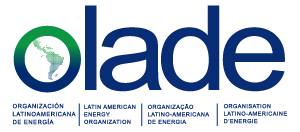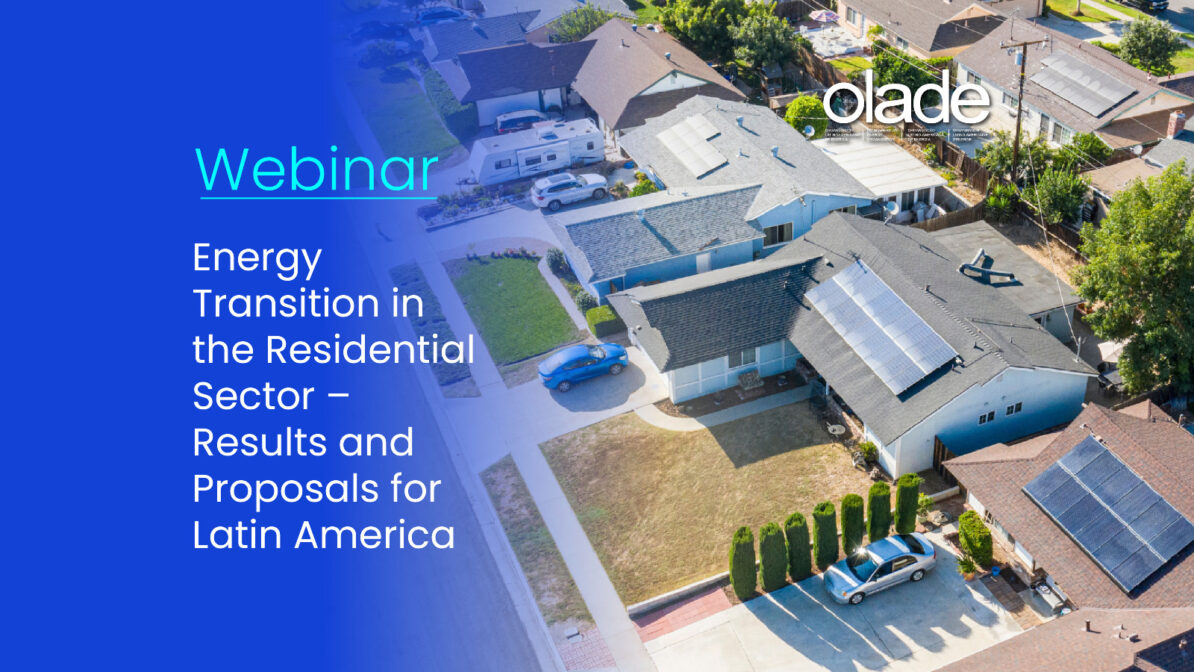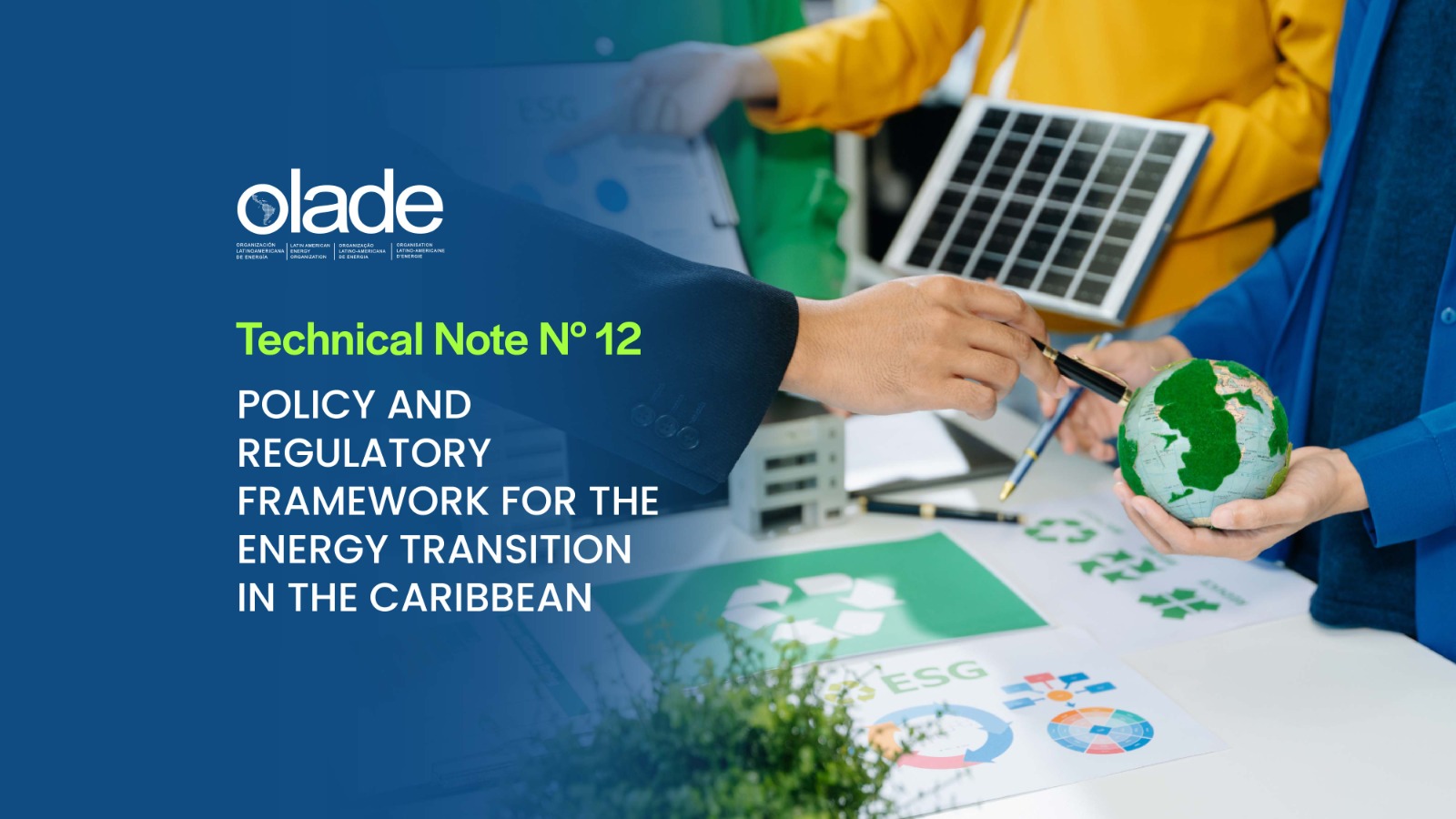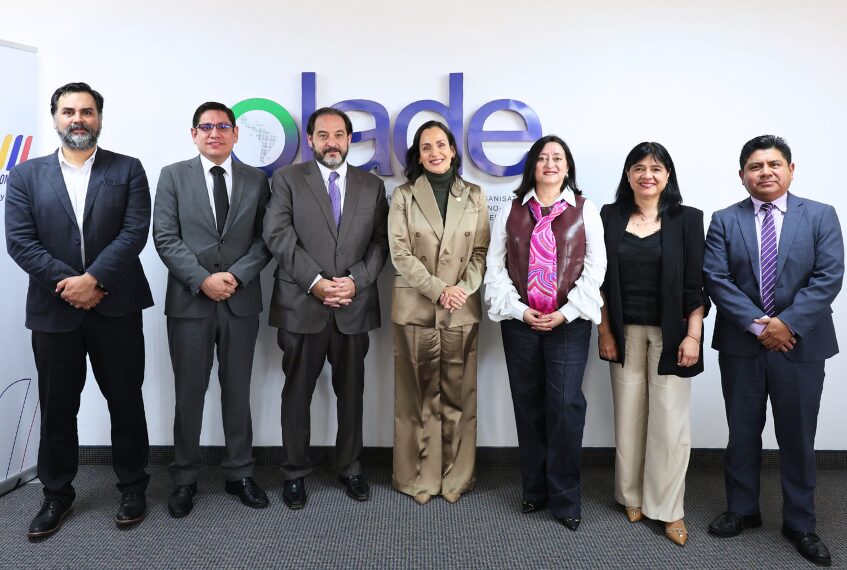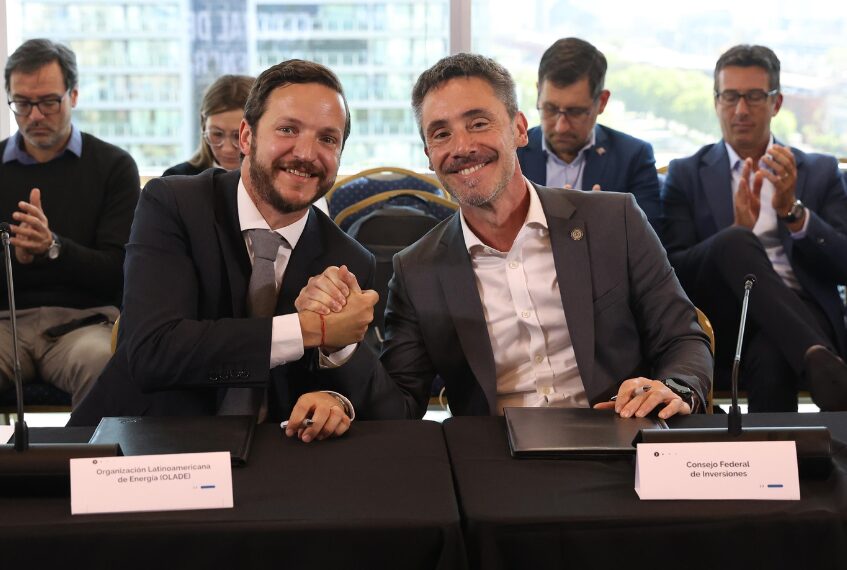The Latin American Energy Organization (OLADE) held the webinar “Energy Transition in the Residential Sector – Findings and Proposals for Latin America”, during which the main results of the regional study on energy transition in the residential sector were presented. This activity was carried out within the framework of the ETRELA project, with the support of the International Climate Initiative (IKI) of the German Government, EBP Chile, Universidad Mayor, and Fundación Futuro Latinoamericano.
During the opening session, Gloria Alvarenga, Director of Integration, Access and Energy Security at OLADE, warned that “biomass burning not only affects the health of women, children, and the elderly, but also contributes to deforestation and climate change.” She called for progress toward clean technological solutions such as electrification and the use of biogas.
Andrés Rebolledo, Executive Secretary of OLADE, emphasized that the energy transition in households goes beyond energy access and requires alignment with public policies on health, housing, and social protection. “It’s not just about energy,” he stated, announcing that OLADE is promoting a roadmap with its 27 member countries to reach a regional political commitment on clean cooking by 2025.
During the event, Nicola Borregaard, General Manager of EBP Chile, presented the results of a study conducted in collaboration with institutions from Brazil, Colombia, Chile, and the United States, which highlights the lag of the residential sector in national decarbonization strategies. She stressed the urgency of electrifying the sector due to its positive effects on public health and emissions mitigation.
The technical report indicates that the residential sector accounts for between 11% and 19% of final energy demand in the countries analyzed, with intensive use of firewood and gas for cooking and heating:
- In Colombia, 70% of residential energy consumption is for cooking, with a high dependency on firewood.
- In Brazil, this figure ranges from 51% to 62%, with gas predominating.
- In Chile, firewood used for heating generates 22% of national CO₂ emissions.
Despite electricity coverage exceeding 90% in most areas, infrastructure and service quality deficiencies persist, especially in rural zones. The study also identifies regulatory gaps and the need to harmonize metrics and policy instruments.
Paola Valencia, from EBP Chile, presented unprecedented findings on fugitive methane emissions from household stoves:
- In Bogotá, 70% of methane comes from leaks while the stove is off.
- In Chile, these emissions account for over 50% of total residential methane.
- In Brazil, methane emissions from stoves were up to 10 times higher than official IPCC estimates.
In addition, measurements of nitrogen oxides, carbon monoxide, and benzene revealed significant health impacts. Data were collected on-site, considering altitude, stove type, and local conditions.
Cristóbal Galbán, researcher at Universidad Mayor, presented experiments conducted in Chile and Colombia confirming continuous methane emissions even when burners are off. He proposed using country-specific Tier 2 emission factors to replace the generic Tier 1 values from the IPCC, aiming to improve national greenhouse gas inventories.
Finally, Maryangel García, from Fundación Futuro Latinoamericano, explained the communication strategy that enabled technical data to be translated into accessible messages for the public, media, and decision-makers. “What is not communicated does not exist. And if it is not measured, it cannot be improved,” she concluded.
